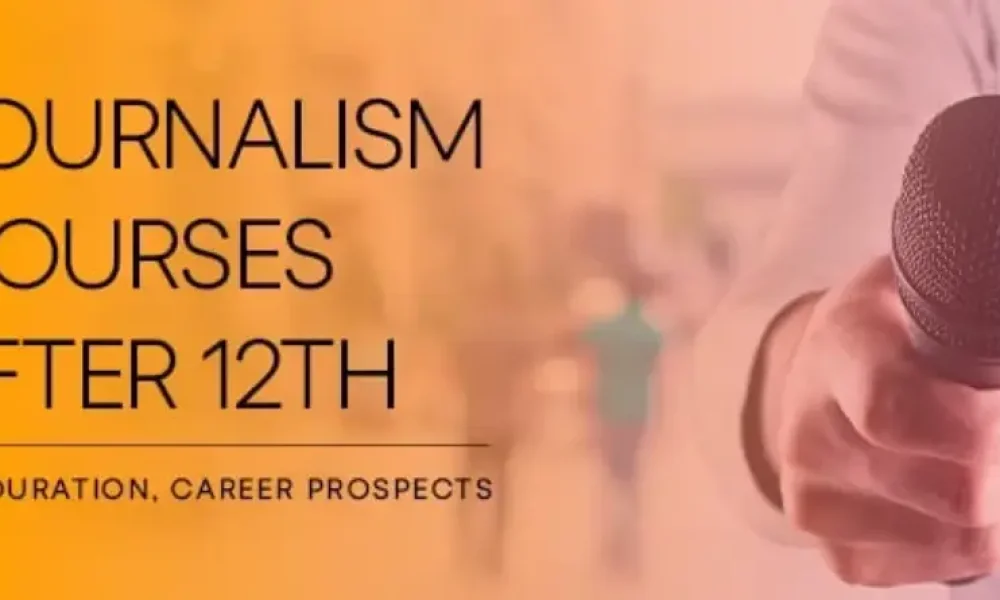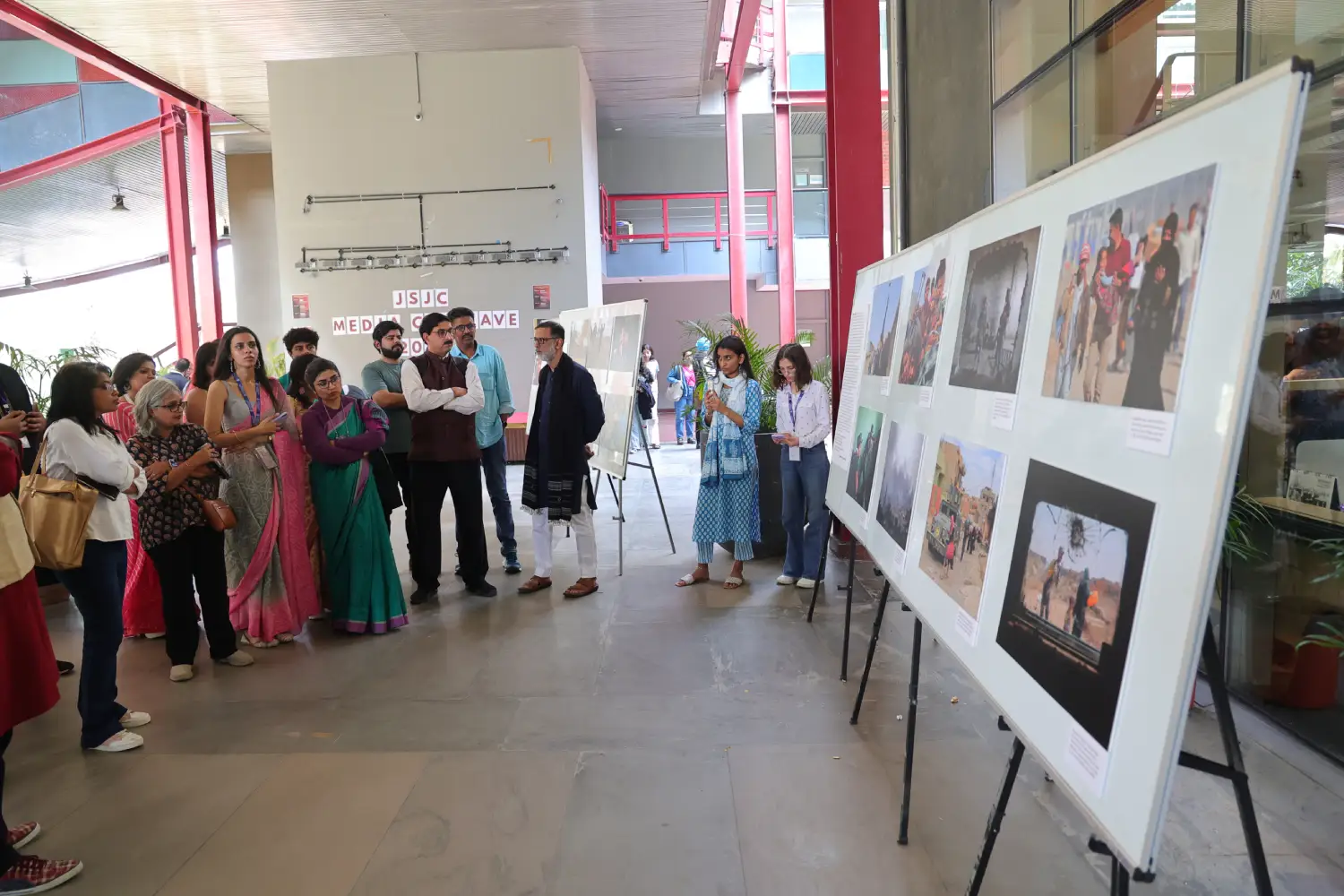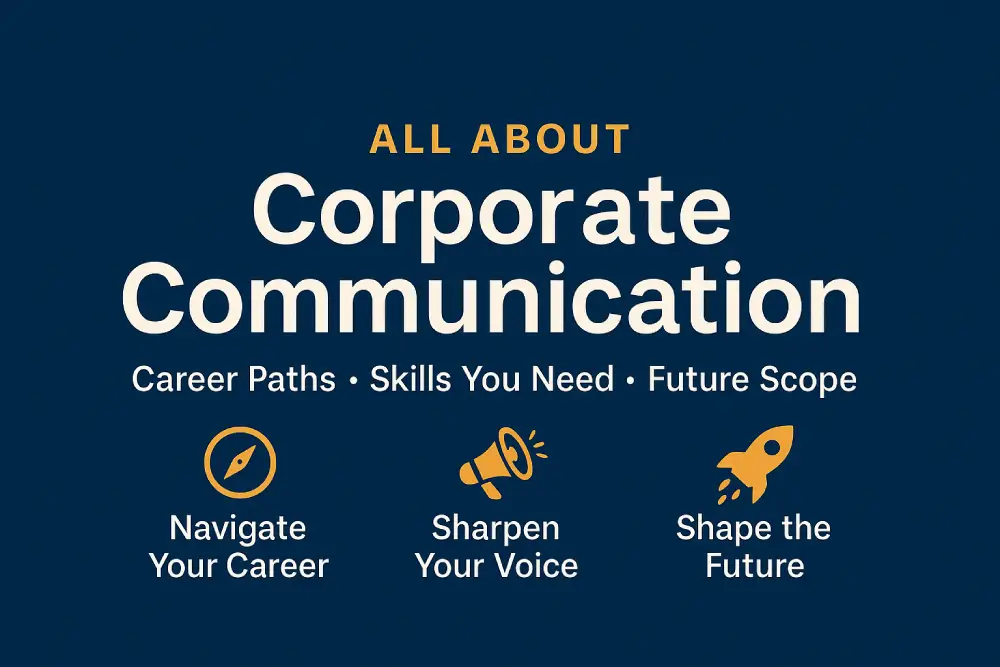The importance of journalism and mass communication is undeniable in a democratic society. From the distribution of news and information to the exploration of other mass media such as film, television and the internet, this discipline spans a vast area of culture and society. Many students opt for journalism courses after 12th to access the diverse career opportunities it offers.
Journalism is a time-honoured profession that continues to adapt to changing media landscapes. Despite the evolution of mass media, its basic purpose, to distribute different types of information, news, and entertainment to the general public remains unchanged.
What is the Difference Between Journalism & Mass Communication?
Human beings’ hunger for knowledge and information is the main force driving profession like journalism to flourish even in the 21st century. Journalists are often praised for their fearlessness, on-ground reporting of real-world events with objectivity, and their courage to seek and speak the truth.
On the other hand, Mass Communication is the means through which the media establishes communication with the public and distributes its content. Journalists use various mass mediums, such as newspapers, radio, television, and the Internet, to reach their audiences. Here are the particular differences between Journalism and Mass Communication to help you explore the journalism courses after the 12th.
| Journalism | Mass Communication | |
| 1. | Journalism is all about collecting, verifying, and circulating information and news content to the public at large. | Mass Communication deals with various types of media, their different usages and their impact on society. |
| 2. | The primary focus of journalism is on factual reporting, news writing, presenting news forecasts, and so on. | Whereas, mass communication focuses on the various means of communication such as print, radio and digital media. |
| 3. | As a journalist, one can work in a news agency, as an anchor in the newsroom, a writer, a cameraman, an editor, or other crew members. | With a degree in Mass Communication, a wider spectrum of opportunities gets unravelled, including fields like advertising, media management, public relations, media production, and media management. |
| 4. | The sensationalism of breaking news and other significant stories usually has a steep deadline for publication, before it gets stale. | However, the methods of mass communication stress planning, strategising and execution, which is done over a period of time. |
| 5. | The ultimate purpose of journalism is to educate and engage its audiences in public discourse by providing credible new information without exaggeration. | In the case of Mass Communication, it analyses how media platforms interact and influence their audiences and how public opinions are formed. |
The journalism courses after the 12th usually provide the basic principles, theories, ethics, and purposes related to the discipline. Advanced studies in journalism and mass communication delve deep into specific areas of the field.
What are the Course Content Featured in a Journalism & Mass Communication Programme?
The programme for journalism and mass communication encompasses a wide range of subjects that empower students with journalistic knowledge and skills, while also introducing them to the various means and methods of mass communication, allowing them to understand the system of media functionality. It includes a gamut of content, including the following:
- History of Journalism
- Types of Journalism
- Mass Media & Communication
- Types of Mass Media
- Methods of Mass Communication
- Mass Communication Theories
- Media Ethics
- Photography & Moving Images
- Modern World Literature
- Audio Journalism
- Reporting with Data
- Studio-based TV Production
- Documentary Production
- Media & International Affairs
- New Media Journalism
- Multimedia Storytelling
- Media Management
- Communications Research Method
- Film History
- Sound Design in Films
- Camera, Choreography & Movement
- Direction & Screenplay
- Principles of Sound Recording
- Cinematography
- Production Design/Editing
- PR Theory & Concepts
- PR Campaigns & Media Relations
- Writing for Business Communications
- Internal communication
- Branding Strategy/Corporate Brand Management
- Corporate Film
- Corporate Ethics & Laws
- Media Planning & Evaluation
- Advertising & Integrated Marketing
- Consumer Culture & Behaviour
- Digital Marketing & Social Media Analytics
- Audience Analysis & Market Research
- Crisis & Risk Communication
These are some of the basic topics usually discussed under a journalism and mass communication Programme. It depends on the type of programme students choose and an advanced course will further expand on these subjects and include newer ones as well.

Skills Learned Through a Journalism & Mass Communication Programme
Journalism is a subject that requires equal knowledge and skills and relies heavily on practical experiences such as internships in newsrooms or on-ground reporting for media organisations. The journalism courses after 12th evaluate and improve specific skills in students, providing guidance to move on to the right career path. Here are some key skills required for a professional leap in Journalism & Mass Communication.
- Writing Skills: Writing skills are essential for journalism students aspiring to become reporters, script writers, sub-editors and so on.
- Communication Skills: As part of the mass communication study, types and communication, methods to communicate with the mass audience and ethical communication.
- Research Skills: Whether fact or fiction, both require adequate research and investigation into the matter and its various aspect.
- Digital Literacy: The growth of digital media is expected to exceed 60% in 2025, in terms of total media consumption, and digital literacy is essential to keep up with the rise of digital media.
- Error & Proof-Reading: Apart from writing, proofreading is a crucial aspect of the print and publishing industries.
- Video Editing Skills: Movies, music videos, documentaries, news bites and other forms of video content contribute a huge portion to the media which require professionals with video editing skills
- Sound Design: Sound is another fascinating aspect of media and art and a sound designer or a team is usually behind the craft of music in videos, podcasts, films and so on.
- Camera Work: From photography to videography to cinematography, the work of the camera in the media industry is extremely crucial.
These are some of the practical and technical skills learnt in journalism and mass communication study, and more is learnt during internships and through actual field experiences.
Top 10 Journalism Courses after 12th you Should Consider
The courses in journalism are divided based on the nature of their curriculum and advanced skills training. There are precisely five ways to obtain a degree in Journalism & Mass Communication: Undergraduate, Post-Graduate, Doctorate, Diploma, and short courses with Certification. The top 10 courses for journalism are listed below:
- Bachelor’s of Journalism & Media Studies (Hons)
- Bachelor’s of Film & New Media (Hons)
- Bachelor’s of Corporate Communication & Public Affairs (Hons)
- B.Sc. in Film & New Media (Hons)
- B.Sc. in Advertising
- Master’s of Journalism
- Master’s of Mass Media
- Master’s of Mass Media & Mass Communication
- P.hD. or Doctoral in Journalism & Communication
- Certificate in Mass Communication
The bachelor’s programmes are specifically for students pursuing journalism courses after 12th. The master’s programme is an advanced study offered only to graduates, and after that, one can pursue P.hD. There are also private certifications or diplomas that can be looked into for students wanting to pursue Journalism & Mass Communication after 12th.
Conclusion
In an era where a tweet can spark a revolution and a video clip can shape global opinion, journalism is no longer just a profession, it’s a responsibility. Studying journalism after the 12th is not merely about chasing a career, but about stepping into a role that shapes how society sees itself. Whether you are behind the camera, crafting a headline, managing a crisis, or telling untold stories, you are becoming part of a larger conversation that defines culture, truth, and change. So, choose your course wisely, not just for where it can take you, but for the kind of impact you want to make in the world.





